Istria Media Days 14-16 October 2024
Speakers
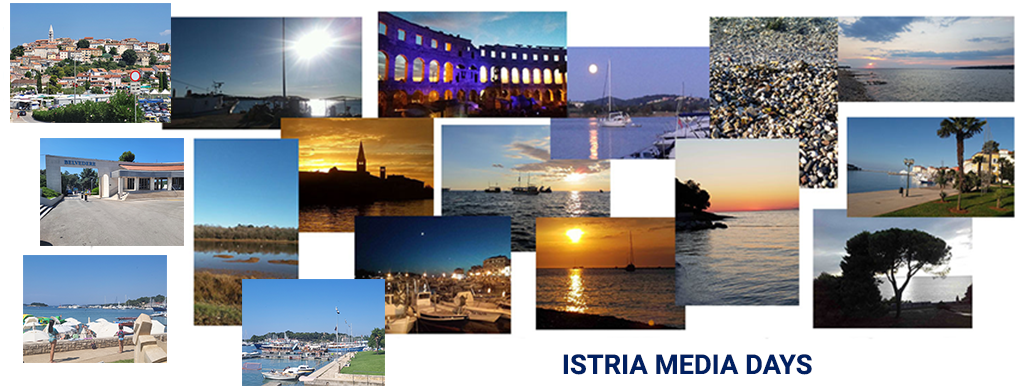

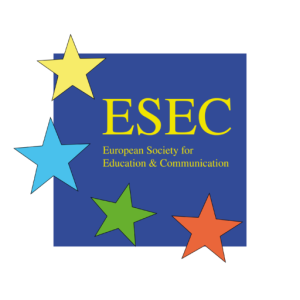

In cooperation with
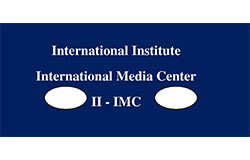

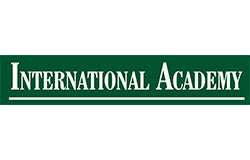


Daria Grudić
Daria Grudić is a Distribution Manager in the Distribution Europe department at Deutsche Welle. Her main responsibilities include the distribution of DW content in the Benelux countries, along with the distribution of the German News Service project in Europe, with a special emphasis on the Balkan countries.
Daria’s academic journey led her to earn a Bachelor’s degree in Journalism in Zagreb, Croatia.
She worked for 8 years as a journalist and editor across various media platforms in Croatia,
spanning from online and radio to magazines. In 2015 she moved to the Netherlands to pursue
a Master’s degree in Media Innovation. In 2021, Daria joined the Distribution Europe team at
Deutsche Welle and moved to Germany
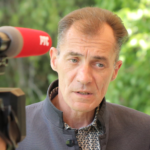
Dejan Milenković
Associate Professor of Public Administration and Media Law and Media Policy at the Faculty of Political Sciences, University of Belgrade, since 2009.
Member of the Working group on drafting media laws in the Republic of Serbia:
– 2001-2003: Law on Public Information and Broadcasting Act;
– 2013-2014 new package of media law: Law on Public Information and Media, Law on Electronic Media, and Law on Public Broadcasting services.
– 2004, Member of the Working group on drafting the Law on Free Access to Information in Republic of Serbia.
Author of several journal articles, research, authorized scripts, and books related to media law and freedom of expression.
– 2023. Media Law and Media Policy, Dejan Milenković, Jelena Surčulija, Faculty of Political Sciences, University of Belgrade, Belgrade (autorized skrpts for students of Media Law);
– 2022. Dejan Milenković, David Yang, Analyzes of the impact of the EU accession process on local governments in Serbia in the area of media (part of negotiation chapter 10 – Information society and media) – Research, Serbian Standing Conference of Towns and Municipalities, Belgrade.
– 2016. Media Law and Media Policy, Dejan Milenković, Faculty of Political Sciences (autorized sprpts for students of Media Law)
2002-2023. Trainer on educational seminars for journalists on media law and freedom of expression in Serbia;
2020-2021. International legal expert and trainer for journalists in Nort Macedonia on Project: Building resilience against violent extremism and terrorism through reinforced journalists, media & government officials (contract reference HED/ADM/GRC/2019/0026),
2003-2022. Speaker/particpant on Frankfurt Oder Annual Media Days Conference, Europa-Universitat Viadrina Frankfurt Oder, Germany;
2012-2021: Member of Article 10 KAS Regional Media Programme working group;
Participant in SEEMF Confernce 2014: Bečići – Monte Negro; 2017 Sofia – Bulgaria; 2018 Zagreb, Croatia; 2021, Belgrade, Serbia; 2022, Sarajevo. Bosina and Herzegovina.
Human Rights activist at the Lawyer’s Committee for Human Rights – CSO from Belgrade, from 1998 to 2009 – legal specialist for freedom of expression and media freedom.

Katerina Veljanovska Blazhevska
Dr. Katerina Veljanovska Blazhevska works as a Full Professor of Political Science at the Faculty of Security Studies, MIT University – Skopje. She has a recent engagement as an Adjunct Professor of the Program on Regional Security Studies (2024) at the George C. Marshall European Center for Security Studies. She is the recipient of a large number of international scholarships and engagements, related to a wide domain of career development, highlighting the following: University of Oslo, Norway, a Master’s Course at the Department of Media and Communications; International Visegrad Fund, a full scholarship for the implementation of a scientific research project at the Faculty of National Security, War Studies University in Warsaw, Poland, with teaching faculty engagement during the stay; scholarship from the Austrian government and the Austrian Study Center for Peace and Conflict Resolution – ASPR (Schleining Castle, Austria), according to an EU-certified international program for intensive training in peacebuilding and conflict
resolution (IPT); multi-year scholarship for the Jean Monnet project for scientific research in
the framework of new media, cyber-security challenges and digital transformations, in
cooperation with the Ukrainian Institute for Crisis Management and Conflict Resolution.
She is a US State Department Bureau of Educational and Cultural Affairs “SUSI” Scholar
(2021/2022), within the American Foreign Policy Institute, implemented by the University of
Montana and the University of Delaware. In 2023, she acquired the status of Postdoctoral
Research Fellow at IRMO, Institute for Development and International Relations in Croatia, in the field of geopolitics and environmental security.
She is an alumni of: George C. Marshall European Center for Security Studies; German Marshal Fund Washington DC; the German “Atlantic Brucke” organization for building Euro Atlantic relations; Bundeswehr – Manfred-Wörner Program.
Dr. Katerina Veljanovska Blazhevska has gained many years of experience in the field of soft
skills management. She is certified by WIFI International GmbH, Vienna, Austria, in the
modules of strategy/planning/organization/risk and conflict management. She has a rich
portfolio of project engagements as a Geo-political analyst and Strategic Communications /
Public Policy / Lobbying / Advocacy expert (EU/EC/COST/ERASMUS/EACEA/U.S.
Department of State/World Health Organization/UNDP).
She is the author of seven books and book chapters, two manuals, and a large number of
scientific research papers in her field of interest. She was awarded with recognition, a plaque
from the former president of the Republic of Macedonia, Dr. Gjorge Ivanov, in honor of the
ten-year International School for Young Leaders, for mutual support and common leadership
vision.
She is a current member of the Commission for Communication and Dissemination of the Red
Cross of the Republic of North Macedonia.
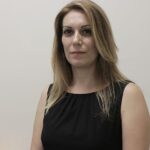
Katharine Sarikakis
Univ.-Prof. Dr. Katharine Sarikakis is Professor of Communication Science with specialisation in Media Governance, Media Organisation and Media Industries at the Department of Communication, University of Vienna. She leads the Media Governance and Industries Research Lab, which aims to research and analyse issues, contexts, actors and impacts of media and cultural governance and their underexplored interconnections to citizenship, autonomy and control as they are articulated in the shapes of media landscapes and the relation of citizens-at-large to dimensions of interlocution.
Katharine has served the academic community continuously in elected leadership positions since 1998 as the founder and then chair of the Emerging Scholars Network of the International Association of Media and Communication researchers (IAMCR). She was the youngest ever elected vice-president of the IAMCR which held Consultant Level A with UNESCO in 2000. Katharine has served also as elected Chair and vice Chair of the Communication Law and Policy Division of the International Communication Association (ICA); the founding and twice elected Chair of the Communication Law and Policy Section of the European Communication Research and Education Association (ECREA). She has served also as an elected member to the ECREA Executive Board, an elected Member of the International Council of IAMCR.
She is the Co-Editor of the International Journal of Media and Cultural Politics.
At the University of Vienna, Katharine was Vice-Director of the Doctoral Programmes of the Faculty of Social Sciences from 2011-2016, in charge of the Communication Science Committee.
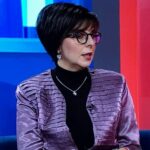
Lejla Turčilo
Dr. sci. Lejla Turčilo is a full time professor at the Department of Communication Science/ Journalism at the Faculty of Political Science, University of Sarajevo, Bosnia-Herzegovina, where she teaches courses in Media Theory, TV Journalism, Online Journalism and Media and Politics at the undergraduate and master’s degree level and Creation of New Public by PR and Online Media at the Doctoral Study. She has published four authored books, six co-authored books, as well as one manual and five research publications. She has published more than forty scientific and professional papers in Bosnia and Herzegovina and abroad. She is the head of the Center for Lifelong Learning at the Faculty of Political Sciences of the University of Sarajevo and the head of the Department of Communication Science/ Journalism. Her field of interest is online communication, intercultural communication, media literacy and media freedom.
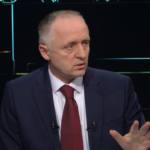
Lutfi Dervishi
With more than 30 years of dedication to the field of media, Lutfi Dervishi has contributed to the world of investigative journalism in Albania. As the founder, trainer and editor of the Journalism Investigative Lab at the Albanian Center for Quality Journalism (ACQJ) since 2016, he has strived to create a nurturing environment for inquisitive minds.
Lutfi Dervishi also had the privilege of serving as the editor of the collaborative TV program “31 Minutes,” an experience that deepened his understanding of impactful storytelling. Through his role as a journalist trainer, he has aimed to inspire the next generation of passionate reporters.
With his background in both print and broadcast media, Lutfi Dervishi has had the opportunity to engage in meaningful discussions on platforms ranging from talk shows to social media.
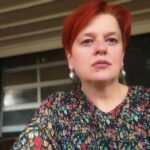
Marina Constantinoiu
Marina Constantinoiu studied journalism at Bucharest University and began her career as a journalist during her first semester of studies. With nearly 33 years of experience in the field, she has held various significant roles, including Head of the Foreign Desk, Deputy Editor-in-Chief, Editor-in-Chief, and Project Coordinator. Her career has spanned across different media platforms, starting with public radio, national daily newspapers, press agencies, and online multimedia news websites.
In addition to her extensive professional background, Marina is actively involved in various media organizations. She serves as a board member of SEEMO (South East Europe Media Organization) and is a member of EJA (European Journalists Association) and CLEW (Clean Energy Wire Network). Marina has received two awards for investigative journalism and is an alumna of the Robert Bosch Foundation’s “Reporters in the Field” media program and the IJP (Internationale Journalisten Programme), the German-Central Eastern European Bursary program.
Furthermore, Marina shares her knowledge and expertise by teaching journalism at Bucharest University, specifically at the Faculty of Journalism and Mass Communication, where she works with MA students.
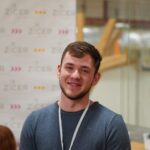
Marko Kralj
Journalist at the Student Televison and student assistant at the Faculty of Political Science in Zagreb.

Matija Matkovic
Journalist at the Croatian radiotelevision and Student Television, student assistant at the Faculty of Political Science in Zagreb.

Nikola Stojanović
Nikola Stojanović, a student of III year at Higher School of Communications in Belgrade and since 2015 a professional journalist. I am currently working as Editor-in-Chief at web-magazine “Umetnost & Kultura”, based in Serbia. I am permanent memeber of The Journalists’ Association of Serbia (JAS) and The Independent Journalists’ Association of Serbia (IJAS). Also, I have a press-card (identification) of International Federation of Journalists (IFJ).

Nataša Ružić
Nataša Ružić is a professor at the Faculty of Political Science of the University of Montenegro in Podgorica. She graduated from People’s
Friendship University of Russia (Department of Journalism), Moscow. Upon graduation, she was awarded a scholarship for MA studies at the same university. She defended her PhD dissertation at the Faculty of Political Science, University of Montenegro in Podgorica in November 2010, where she has been teaching Introduction to Journalism, History of Journalism, Media in Crisis Situations and Journalist Ethics since September 2011.

Nensi Blazevic
Nensi Blazevic is an experienced journalist and also media researcher. In the past twenty years, working for the Croatian national television – HRT, 24 Hours TV and Al Jazeera Balkans, she became a highly experienced journalist, editor and presenter and her work is recognized nationwide. Her work as a journalist is boosted by her scientific and academic activities. She is the PhD candidate at the Faculty of Humanities and Social Sciences, University of Zagreb. Her role as a media expert is to create education programs for young media users. She is a lecturer at the Faculty of Political Science of Zagreb University.

Oleksandra Gudkova
Oleksandra Gudkova is a Senior Researcher (postdoc) at the Department of Communication, University of Vienna. Her research areas are Media Governance, Gender and Democracy, in particular woman roles in European pro-democracy and gender justice social movements.
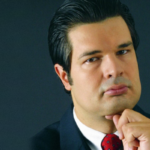
Oliver Vujovic
Oliver Vujovic is a co-founder of the South East Europe Media Organisation (SEEMO) and since 2000 has been SEEMO Secretary General. Vujovic worked as a journalist and Balkan correspondent for the Austrian daily Die Presse between 1991 and 2000, and as a freelancer for different media in Germany, Austria, Switzerland, and the UK. He also worked in the marketing department of the German company Henkel. He graduated in economics and is currently working on a PhD at the University of Vienna. Vujovic started his professional work as a journalist for Radio Indeks 202 (Radio Belgrade) in Belgrade (1988) and worked from the founding for Radio B92 in Belgrade (1989). In 2000 and 2001, he served as Director of the Vienna Balkan publication Südosteuropäischer Dialog, and Director and Advisor of the Kulturzentrum in Vienna.
Vujovic is also a founder and Deputy Director of the South-East and Central Europe PR Organisation (SECEPRO) in Vienna and of the International Institute – International Media Center in Vienna. He is also co-founder and Deputy Director of the International Academy in Belgrade. He is author, co-editor, editor, and publisher of numerous books, magazines, publications, research articles, and research papers.
Oliver Vujovic was member of different boards.
Currently he is member of the ECPMF (Leipzig, Germany) Supervisory Board.
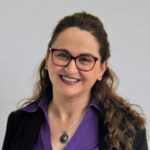
Remzie Shahini-Hoxhaj
REMZIE SHAHINI-HOXHAJ – is an Professor of Communication in the Department of Journalism at the University of Prishtina “Hasan Prishtina”. She is the founder and director of the Media Institute at the University of Prishtina. She was a lecturer at the University of Applied Science Salzburg in Austria (2019-2021) and a visiting fellow at Dartmouth University (2017). Her research interests include television and communication culture in transitional societies, media literacy and public relation. Since 2000, she has been involved in numerous international projects on education and human rights in Kosovo. Dr. Shahini-Hoxhaj completed her Ph.D. in Communication and Journalism at the University of Vienna, Austria (2014). She also holds a dual Master’s degree in Intercultural Communication from Europa-Viadrina University, Frankfurt/Oder, Germany, and St. Kliment Ohridski University, Sofia, Bulgaria (2004). Her Bachelor’s degree is in German Language and Literature from the University of Prishtina (2001). Her research is published in multiple peer-reviewed journals. She is the current President of the Kosovar Austrian Society (OEKG), board member of the European Communication and Culture Society (ESEC) and the Oral History Institute in Kosovo. She has received many awards for her work and is a mother of two. She fluently speaks Albanian, English, German and Serbo-Croatian.

Senad Alibegović
Senad Alibegovic is a PhD candidate at the University of Vienna, Department of Communication, where he is writing his dissertation under the supervision of Univ.-Prof. Dr. Katharine Sarikakis. He is researching the role of youth as a political actor in the media governance of online hate-speech in post-conflict societies.
For the past five years, Senad has been working for the United Nations – IOM social cohesion and resilience portfolio, where he developed and supported 268 unifying youth-oriented media projects across local communities in BiH. Currently, he is a CEO of KENSHO Communications & Media, marketing agency based in Sarajevo.
In 2018, Senad received several awards, including the “Gender Equality Award 2017,” a national award for special promotion of gender equality, awarded by the Ministry of Human Rights, Parliamentary Assembly of BiH, and OSCE Mission to BiH in Sarajevo. He also received the One Young World Peace Ambassador Award at the OYW Summit in The Hague and “The Best Youth Change-maker 2018” Award by the LEAP Summit in Zagreb.
Senad is a member of IAMCR – International Association for Media and Communication Research. He has authored and co-authored numerous publications and articles and has been a guest lecturer at various conferences, workshops, and educational institutions. Additionally, he is the founder of FuckUp Nights Sarajevo and FuckUp Nights Zenica motivational platforms. He was twice distinguished as a TEDx Talks speaker, in 2017 with the topic “Are you brave enough to ask for more?” and in 2022 with the topic “Digital Remedy for Online Hate-speech.”

Tonči Gabelić
Tonči Gabelić holds MA in journalism at the Faculty of Political Science at the University of Zagreb. Currently, he is an editor and journalist at the news radio agency Media servis. Earlier, he assisted in the production of the reality TV show Married at First Sight. He also contributed to the video news production for the news website Dnevnik.hr.
His CV is available on https://www.linkedin.com/in/tončigabelić/

Tomislav Levak
Tomislav Levak, PhD in Communication Studies, is a lecturer at the Department of Culture, Media and Management at the Academy of Art and Culture in Osijek at the Josip Juraj Strossmayer University in Osijek.
He completed two graduate studies at the University interdisciplinary graduate study program of Cultural Studies, in October 2014, at the Department of Cultural Studies of the Josip Juraj Strossmayer University in Osijek, thus obtaining a double M.A. degree in cultural studies in two different fields – Media Culture and Cultural Management. He finished the Postgraduate Interdisciplinary University Doctoral Program in Communication Studies at the Doctoral School of Josip Juraj Strossmayer University of Osijek in 2024. The topic of his doctoral dissertation was the ways and reasons for the spread of disinformation and fake news through social networks and communication platforms.
Previously worked as a successful journalist from November 1996 to March 2015 in a number of national and regional print media – Slobodna Dalmacija, Jutarnji List, Slavonski Dom and Glas Slavonije. Has practical experience in television, radio and internet journalism. In parallel, he was actively educated in the areas of verbal, paraverbal and non-verbal communication, public speaking and public relations. Editor of the University Gazette from March 2015 to January 2020, the official gazette of the University of Osijek, and has been a member of its editorial board from January 2020. He has designed and led many communication and media training sessions as well as lectures and workshops on the topics of public speaking and performance, as well as on various areas of media literacy, with an emphasis on disinformation and fake news.
In April 2015, he started working as an assistant at the Department of Cultural Studies of Josip Juraj Strossmayer University in Osijek, at the Department of Media Culture. From June 2018, after the Department was merged with the Academy of Arts and Culture in Osijek, he worked first as an assistant, and from July 2021 as a lecturer at the Academy of Arts and Culture in Osijek, at the Department of Culture, Media and Management. He is the leader and participant of several regional and national scientific and professional projects and programs on the topic of media and media literacy. He was the project coordinator of the international project The Implementation of Media Education in Schools (iMES), which was carried out from September 2018 to February 2021 by project partners, educational institutions from Lithuania, Greece and Croatia. He is the co-author of curriculum and methodological materials for a new high school subject in the field of media literacy, which was published in four languages – English, Lithuanian, Greek and Croatian. He is the co-author of a handbook on the Internet and social networks for seniors published by the Electronic Media Agency.
His areas of scientific interest are new media, communication science, media literacy, media and public relations, disinformation and fake news and public speaking. He has already participated in about thirty national and international scientific and professional conferences and meetings and published about twenty scientific papers. Along with Croatian, he speaks, reads and writes English and German.

Tilia Stingl de Vasconcelos
Dr. Tilia Stingl is an academic coordinator, project manager, lecturer, and social systems expert with a focus on systemic solutions, communication, and innovation. She holds a degree in Business Informatics from the Vienna University of Technology, a university course in Magazine Journalism, and a Doctorate in Communication Sciences from the University of Vienna, specializing organizational communication. With a rich background in management and process consulting, including experience in change management and productivity optimization in international projects, Dr. Tilia Stingl has also co-founded a high-tech start-up and worked as a lecturer in business administration and change management. Her additional training in journalism, public relations and media literacy complements her multidisciplinary expertise.
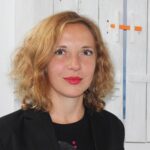
Viktorija Car
Viktorija Car (PhD in Media and Communication) is a Full Professor at the University of Split, Croatia, at the Communication and Media studies. Previously she worked for 22 years at the University of Zagreb, Faculty of Political Science, Media and Communication Department. She is a Research Fellow of the Social Science Research Center at Mississippi State University, USA.
In the focus of her scientific research are public service media, visual culture and visual media, media narratives, digital activism, media and gender studies, media and human rights, media and minority studies. She was project leader of the Digital Data and Security project (University of Zagreb, 2018-2022). She was a MC member of the COST Action IS0906: Transforming Audiences, Transforming Societies: “New challenges and methodological innovations in European media audience research“(2010-2014). She coordinated Council of Europe CARDS project Radio-television Student (2004, 300.000 Eur).
She was the founding Editor-in-Chief of the Media Studies journal (www.mediastudies.fpzg.hr) 2010-2017. She was member of the HRT Program Council (Croatian public service radio-television) 2011-2012. She worked as a journalist and a screenwriter for the Croatian Public Service Television Hrvatska televizija (HTV) 1998-2002, at the Education Program. She was general manager of the Croatian Association of Fine Artists (HDLU) 2003-2004.
She edited or is a co-editor of 6 books, Requirements for Modern Journalism Education – The Perspective of Students in South East Europe (2016), Mediji, novinarstvo i ljudska prava [Media, journalism and human rights] (2017), Mediji i javni interes [Media and public interest] (2016), Medijska pismenost – preduvjet za odgovorne medije [Media Literacy – Prerequisite for Accountable Media] (2015), Mi i oni kroz medijske naočale: medijski diskursi u Bosni i Hercegovini, Hrvatskoj i Srbiji [We and They through Media Lenses: Media Discourses in Bosnia and Herzegovina, Croatia and Serbia] (2015) and Putokazi prema slobodnim i odgovornim medijima [Guideposts to Free and Accountable Media] (2012). She is author or co-author of about 30 articles and book chapters. Her bibliography is available on https://unizg.academia.edu/ViktorijaCar
and on https://www.croris.hr/crosbi/searchByContext/2/7089







